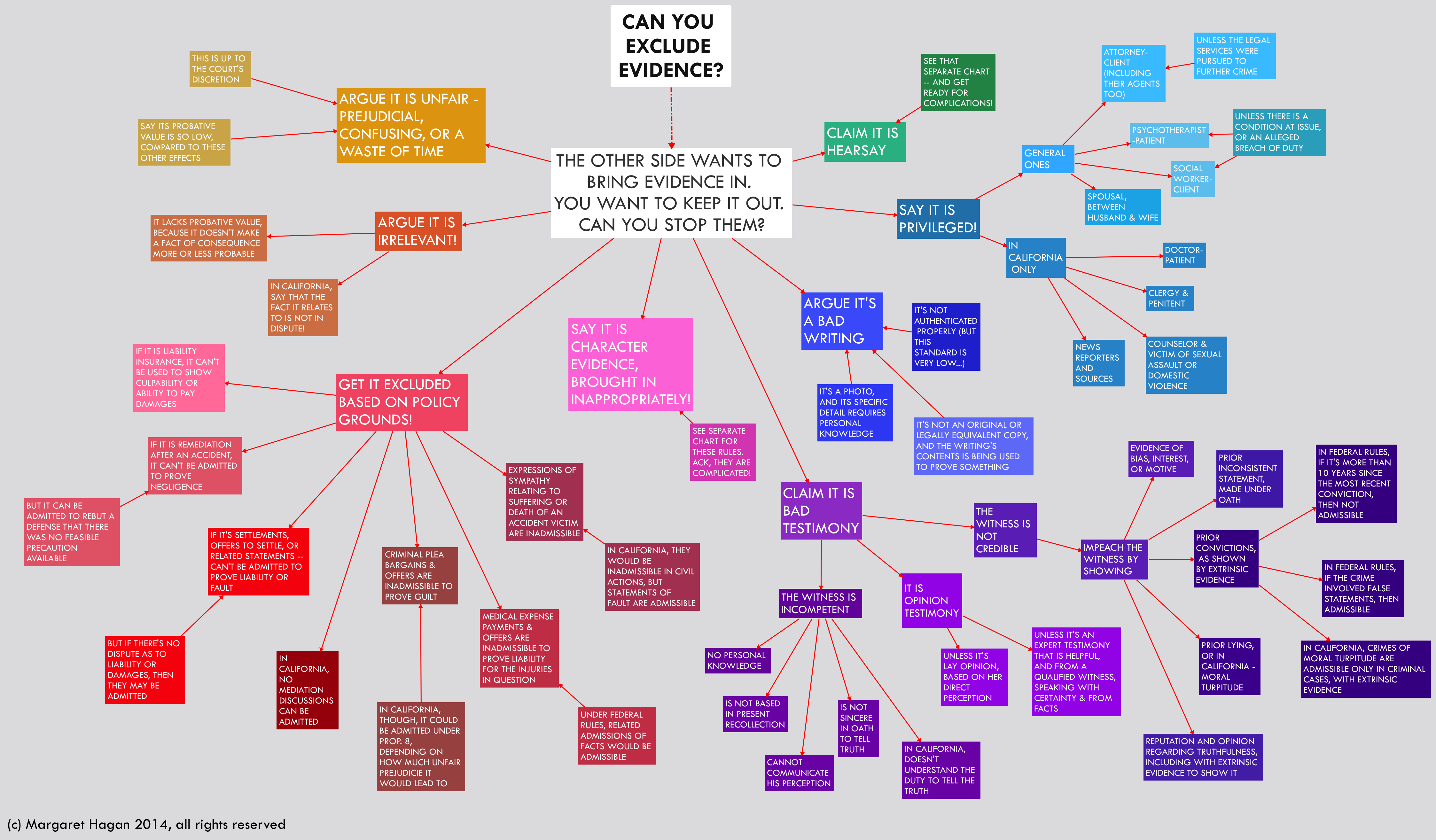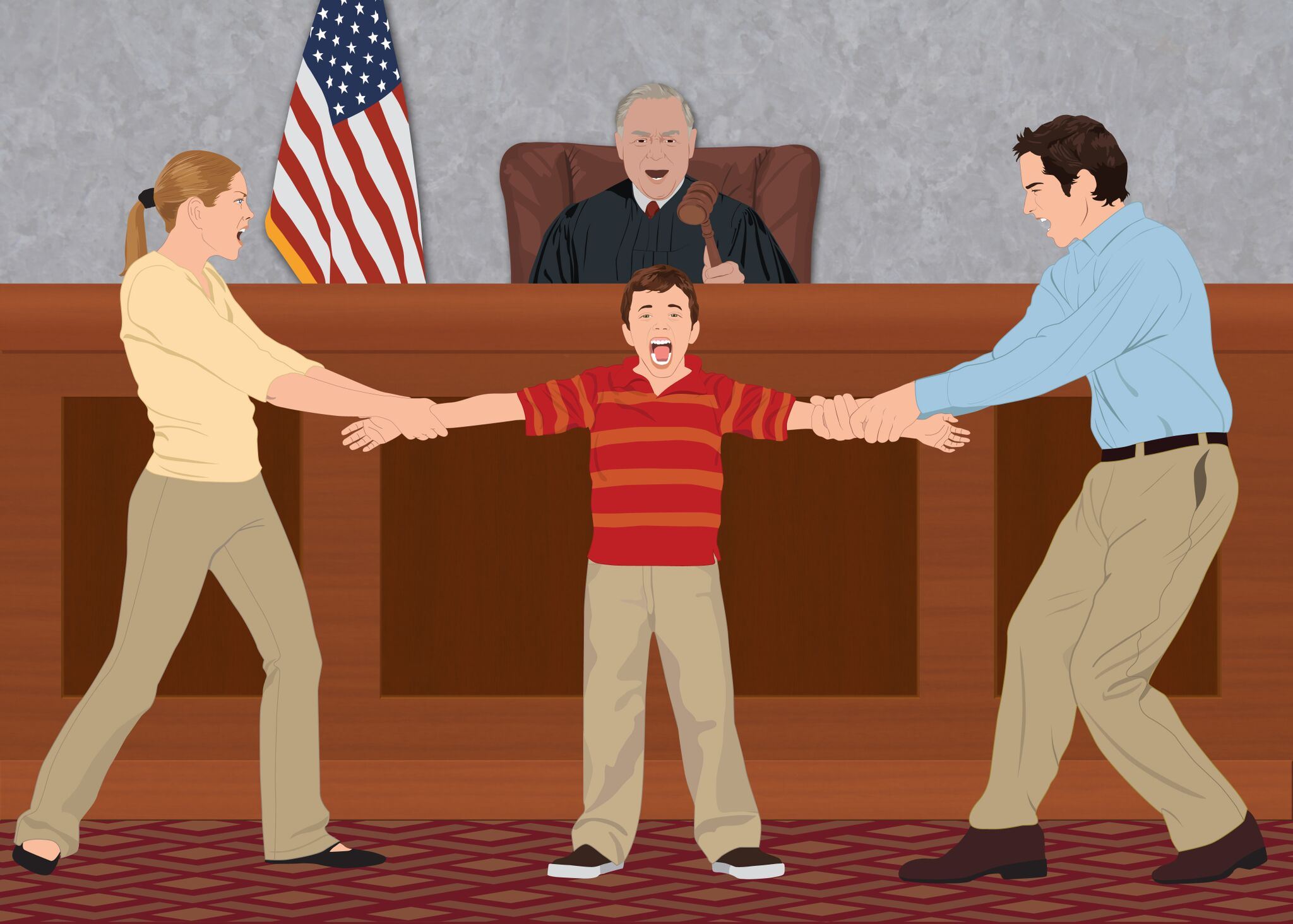Cal. Code Civ. Proc. § 1008 Section 1008
Motion to reconsider matter and modify, amend or revoke prior order
Motion for Reconsideration in California
Section 1008 - Motion to reconsider matter and modify, amend or revoke prior order
or granted conditionally, or on terms, any party affected by the order may, within 10 days after service upon the party of
written notice of entry of the order and based upon new or different facts, circumstances, or law, make application to the
same judge or court that made the order, to reconsider the matter and modify, amend, or revoke the prior order. The party
making the application shall state by affidavit what application was made before, when and to what judge, what order or
decisions were made, and what new or different facts, circumstances, or law are claimed to be shown.(b) A party who originally made an application for an order which was refused in whole or part, or granted conditionally or
on terms, may make a subsequent application for the same order upon new or different facts, circumstances, or law, in which
case it shall be shown by affidavit what application was made before, when and to what judge, what order or decisions were
made, and what new or different facts, circumstances, or law are claimed to be shown. For a failure to comply with this
subdivision, any order made on a subsequent application may be revoked or set aside on ex parte motion.(c) If a court at any time determines that there has been a change of law that warrants it to reconsider a prior order it
entered, it may do so on its own motion and enter a different order.(d) A violation of this section may be punished as a contempt and with sanctions as allowed by Section 128.7. In addition,
an order made contrary to this section may be revoked by the judge or commissioner who made it, or vacated by a judge of
the court in which the action or proceeding is pending.(e) This section specifies the court’s jurisdiction with regard to applications for reconsideration of its orders and renewals
of previous motions, and applies to all applications to reconsider any order of a judge or court, or for the renewal of a previous
motion, whether the order deciding the previous matter or motion is interim or final. No application to reconsider any order or for
the renewal of a previous motion may be considered by any judge or court unless made according to this section.(f) For the purposes of this section, an alleged new or different law shall not include a later enacted statute without a
retroactive application.(g) An order denying a motion for reconsideration made pursuant to subdivision (a) is not separately appealable. However, if the
order that was the subject of a motion for reconsideration is appealable, the denial of the motion for reconsideration is reviewable
as part of an appeal from that order.(h) This section applies to all applications for interim orders.
Ca. Civ. Proc. Code § 1008
What Is a Motion for Reconsideration?
Section 1008 of the Code of Civil Procedure provides for reconsideration of court orders. A motion to reconsider is broad in scope and allows any party affected by the order to seek reconsideration and modification, amendment or vacation of prior orders. Morite of Calif. v. Super. Ct. (1993) 19 Cal.App.4th 485, 490.
The Court has inherent authority to reconsider any of its own rulings on its own motion provided that it gives the parties notice and a reasonable opportunity to litigate the issue. Le Francois v. Goel (2005) 35 Cal.4th 1094, 1096-1109.
“The legislative intent was to restrict motions for reconsideration to circumstances where a party offers the court some fact or circumstance not previously considered, and some valid reason for not offering it earlier.” Weil & Brown et al., CAL. PRAC. GUIDE: CIV. PRO. BEFORE TRIAL (The Rutter Group 2018) ¶9:328, p.9(I)-148 citing Gilberd v. AC Transit (1995) 32 Cal.App.4th 1494, 1500 (Gilberd), et al.
“A party who originally made an application for an order which was refused in whole or part, or granted conditionally or on terms, may make a subsequent application for the same order upon new or different facts, circumstances, or law, in which case it shall be shown by affidavit what application was made before, when and to what judge, what order or decisions were made, and what new or different facts, circumstances, or law are claimed to be shown. For a failure to comply with this subdivision, any order made on a subsequent application may be revoked or set aside on ex parte motion.” Code of Civ. Proc., § 1008(b).
To be entitled to reconsideration, a party must show new or different facts and a satisfactory explanation for failing to produce such evidence earlier. Kalivas v. Barry Controls Corp., (1996) 49 Cal.App.4th 1152, 1160-61. The requirement of satisfactory explanation for failing to provide the evidence earlier can only be described as a strict requirement of diligence. Garcia v. Hejmadi (1997) 58 Cal.App.4th 674, 690.
“The burden under § 1008 is comparable to that of a party seeking a new trial on the ground of newly discovered evidence: the information must be such that the moving party could not, with reasonable diligence, have discovered or produced it at the trial. Case law after the 1992 amendments to § 1008 has relaxed the definition of ‘new or different facts,’ but it is still necessary that the party seeking that relief offer some fact or circumstance not previously considered by the court.” New York Times Co. v. Superior Court (2005) 135 Cal.App.4th 206, 212-213.
A motion for reconsideration cannot be granted on the ground that the court misapplied the law in its initial ruling. Gilberd v. AC Transit (1995) 32 Cal.App.4th 1494, 1500.
“When an application for an order has been made to a judge, or to a court, and refused in whole or in part, or granted, or granted conditionally, or on terms, any party affected by the order may, within 10 days after service upon the party of written notice of entry of the order and based upon new or different facts, circumstances, or law, make application to the same judge or court that made the order, to reconsider the matter and modify, amend, or revoke the prior order. The party making the application shall state by affidavit what application was made before, when and to what judge, what order or decisions were made, and what new or different facts, circumstances, or law are claimed to be shown.” Code of Civ. Proc., § 1008(a). cited https://trellis.law/ca/motion-type/motion-to-reconsider-california-45
What will a judge consider in a Motion for Reconsideration?
The exact factors a judge will consider when deciding whether to grant your Motion for Reconsideration will depend on your state’s laws. Generally, a judge will consider factors such as whether:
- there is new evidence that is significant to the legal issue and was not available when the case ended, despite your best efforts to get that evidence;
- the final decision was made after an incorrect interpretation of the law or the law has changed since the judge made his/her final decision; and
- denying the Motion for Reconsideration will result in an obvious injustice.
California Code of Civil Procedure section 1008.
(a) When an application for an order has been made to a judge, or to a court, and refused in whole or in part, or granted, or granted conditionally, or on terms, any party affected by the order may, within 10 days after service upon the party of written notice of entry of the order and based upon new or different facts, circumstances, or law, make application to the same judge or court that made the order, to reconsider the matter and modify, amend, or revoke the prior order. The party making the application shall state by affidavit what application was made before, when and to what judge, what order or decisions were made, and what new or different facts, circumstances, or law are claimed to be shown.
(b) A party who originally made an application for an order which was refused in whole or part, or granted conditionally or on terms, may make a subsequent application for the same order upon new or different facts, circumstances, or law, in which case it shall be shown by affidavit what application was made before, when and to what judge, what order or decisions were made, and what new or different facts, circumstances, or law are claimed to be shown. For a failure to comply with this subdivision, any order made on a subsequent application may be revoked or set aside on ex parte motion.
(c) If a court at any time determines that there has been a change of law that warrants it to reconsider a prior order it entered, it may do so on its own motion and enter a different order.
(d) A violation of this section may be punished as a contempt and with sanctions as allowed by Section 128.7. In addition, an order made contrary to this section may be revoked by the judge or commissioner who made it, or vacated by a judge of the court in which the action or proceeding is pending.
(e) This section specifies the court’s jurisdiction with regard to applications for reconsideration of its orders and renewals of previous motions, and applies to all applications to reconsider any order of a judge or court, or for the renewal of a previous motion, whether the order deciding the previous matter or motion is interim or final. No application to reconsider any order or for the renewal of a previous motion may be considered by any judge or court unless made according to this section.
(f) For the purposes of this section, an alleged new or different law shall not include a later enacted statute without a retroactive application.
(g) An order denying a motion for reconsideration made pursuant to subdivision (a) is not separately appealable. However, if the order that was the subject of a motion for reconsideration is appealable, the denial of the motion for reconsideration is reviewable as part of an appeal from that order.
(h) This section applies to all applications for interim orders. cited https://leginfo.legislature.ca.gov/faces/codes_displaySection.xhtml?lawCode=CCP§ionNum=1008.
(Amended by Stats. 2011, Ch. 78, Sec. 1. (AB 1067) Effective January 1, 2012.)
To Learn More…. Read MORE Below and click the links
Abuse & Neglect – The Reporters (Police, D.A & Medical & the Bad Actors)
If You Would Like to Learn More About: The California Mandated Reporting Law Click Here
To Read the Penal Code § 11164-11166 – Child Abuse or Neglect – California Penal Code 11164-11166
Child Abuse and Neglect Reporting Act Article 2.5. (CANRA) Click Here
Mandated Reporter form click link Mandated Reporter FORM SS 8572.pdf – The Child Abuse
ALL POLICE CHIEFS, SHERIFFS AND COUNTY WELFARE DEPARTMENTS
INFORMATION BULLETIN click here Officers and DA’s for (Procedure to Follow)
It Only Takes a Minute to Make a Difference in the Life of a Child
Learn More About True Threats Here below….
We also have the The Brandenburg v. Ohio (1969) – 1st Amendment
CURRENT TEST = We also have the The ‘Brandenburg test’ for incitement to violence – 1st Amendment
We also have the The Incitement to Imminent Lawless Action Test– 1st Amendment
We also have the True Threats – Virginia v. Black is most comprehensive Supreme Court definition – 1st Amendment
We also have the Watts v. United States – True Threat Test – 1st Amendment
We also have theClear and Present Danger Test – 1st Amendment
We also have theGravity of the Evil Test – 1st Amendment
We also have the Elonis v. United States (2015) – Threats – 1st Amendment
Learn More About What is Obscene….
We also have the Miller v. California – 3 Prong Obscenity Test (Miller Test) – 1st Amendment
We also have the Obscenity and Pornography – 1st Amendment
Learn More About Police, The Government Officials and You….
We also have theBrayshaw v. City of Tallahassee – 1st Amendment – Posting Police Address
We also have thePublius v. Boyer-Vine –1st Amendment – Posting Police Address
We also have the Lozman v. City of Riviera Beach, Florida (2018) – 1st Amendment – Retaliatory Police Arrests
We also have the Nieves v. Bartlett (2019) – 1st Amendment – Retaliatory Police Arrests
We also have the Freedom of the Press – Flyers, Newspaper, Leaflets, Peaceful Assembly – 1st Amendment
We also have the Insulting letters to politician’s home are constitutionally protected, unless they are ‘true threats’ – 1st Amendment
We also have the Introducing TEXT & EMAILDigital Evidencein California Courts – 1st Amendment
We also have the First Amendment Encyclopedia very comprehensive – 1st Amendment
ARE PEOPLE LYING ON YOU? CAN YOU PROVE IT? IF YES…. THEN YOU ARE IN LUCK!
We also have the Penal Code 118 PC – California Penalty of “Perjury” Law
We also have theFederal Perjury – Definition by Law
We also have the Penal Code 132 PC – Offering False Evidence
We also have the Penal Code 134 PC – Preparing False Evidence
We also have thePenal Code 118.1 PC – Police Officers Filing False Reports
We also have the Spencer v. Peters– Police Fabrication of Evidence – 14th Amendment
We also have the Penal Code 148.5 PC – Making a False Police Report in California
We also have the Penal Code 115 PC – Filing a False Document in California
Sanctions and Attorney Fee Recovery for Bad Actors
FAM § 3027.1 – Attorney’s Fees and Sanctions For False Child Abuse Allegations – Family Code 3027.1 – Click Here
FAM § 271 – Awarding Attorney Fees– Family Code 271 Family Court Sanction Click Here
Awarding Discovery Based Sanctions in Family Law Cases – Click Here
FAM § 2030 – Bringing Fairness & Fee Recovery – Click Here
Know Your Rights Click Here (must read!)
Under 42 U.S.C. $ection 1983 – Recoverable Damage$
42 U.S. Code § 1983– Civil Action for Deprivation of Right$
$ection 1983 Lawsuit – How to Bring a Civil Rights Claim
18 U.S. Code § 242 – Deprivation of Right$ Under Color of Law
18 U.S. Code § 241 – Conspiracy against Right$
$uing for Misconduct – Know More of Your Right$
Police Misconduct in California – How to Bring a Lawsuit
Malicious Prosecution / Prosecutorial Misconduct – Know What it is!
New Supreme Court Ruling – makes it easier to sue police
RELATIONSHIP WITH YOUR CHILDREN & YOUR CONSTITUIONAL RIGHT$ + RULING$
YOU CANNOT GET BACK TIME BUT YOU CAN HIT THOSE PUNKS WHERE THEY WILL FEEL YOU = THEIR BANK
We also have the 9.3 Section 1983 Claim Against Defendant as (Individuals) — 14th Amendment thisCODE PROTECTS all US CITIZENS
We also have the Amdt5.4.5.6.2 – Parental and Children’s Rights 5th Amendment thisCODE PROTECTS all US CITIZENS
We also have the 9.32 – Interference with Parent / Child Relationship – 14th Amendment thisCODE PROTECTS all US CITIZENS
We also have the California Civil Code Section 52.1Interference with exercise or enjoyment of individual rights
We also have the Parent’s Rights & Children’s Bill of RightsSCOTUS RULINGS FOR YOUR PARENT RIGHTS
We also have a SEARCH of our site for all articles relatingfor PARENTS RIGHTS Help!
GRANDPARENT CASE LAW
Troxel v. Granville, 530 U.S. 57 (2000) – Grandparents – 14th Amendment
Third “PRESUMED PARENT” Family Code 7612(C) – Requires Established Relationship Required
S.F. Human Servs. Agency v. Christine C. (In re Caden C.)
9.32 Particular Rights – Fourteenth Amendment – Interference with Parent / Child Relationship
Parent’s Rights & Children’s Bill of Rights
Cal State Bar PDF to read about Three Parent Law – The State Bar of California family law news issue4 2017 vol. 39, no. 4.pdf
Contesting / Appeal an Order / Judgment / Charge
Options to Appealing– Fighting A Judgment Without Filing An Appeal Settlement Or Mediation
Cal. Code Civ. Proc. § 1008 Motion to Reconsider
Penal Code 1385 – Dismissal of the Action for Want of Prosecution or Otherwise
Penal Code 1538.5 – Motion To Suppress Evidence in a California Criminal Case
CACI No. 1501 – Wrongful Use of Civil Proceedings
Penal Code “995 Motions” in California – Motion to Dismiss
WIC § 700.1 – If Court Grants Motion to Suppress as Evidence
 Epic Criminal / Civil Rights SCOTUS Help – Click Here
Epic Criminal / Civil Rights SCOTUS Help – Click Here
 Epic Parents SCOTUS Ruling – Parental Rights Help – Click Here
Epic Parents SCOTUS Ruling – Parental Rights Help – Click Here
 Judge’s & Prosecutor’s Jurisdiction– SCOTUS RULINGS on Judicial & Prosecutorial Conduct
Judge’s & Prosecutor’s Jurisdiction– SCOTUS RULINGS on Judicial & Prosecutorial Conduct
Family Treatment Court Best Practice Standards
Download Here this Recommended Citation
Please take time to learn new UPCOMING
The PROPOSED Parental Rights Amendment
to the US CONSTITUTION Click Here to visit their site
The proposed Parental Rights Amendment will specifically add parental rights in the text of the U.S. Constitution, protecting these rights for both current and future generations.
The Parental Rights Amendment is currently in the U.S. Senate, and is being introduced in the U.S. House.


